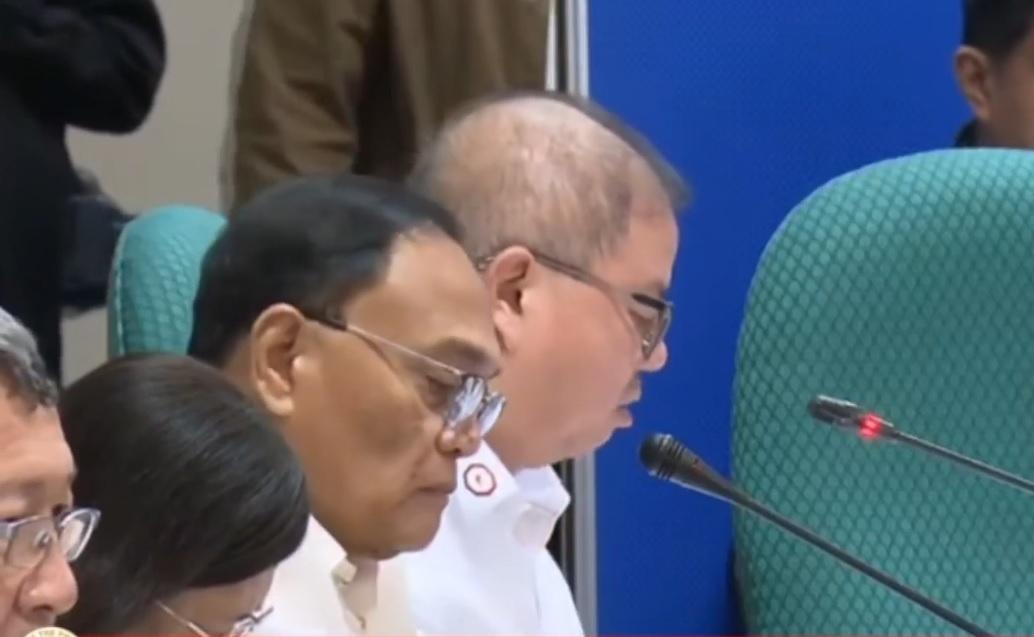Filtered by: Money
Agriculture Secretary on Wednesday called for amending the Rice Tariffication Law (RTL), warning that it «threatens to kill» the rice industry.
During the hearing of the Senate committee on agriculture, food and agrarian reform, the Secretary emphasized that the government must revisit, amend, and possibly replace laws that «no longer serve farmers and consumers.»
«Foremost among these is the Rice Tariffication Law. Though crafted with noble goals, I have to admit, it has faltered. By fully liberalizing rice imports, it unintentionally undermined the Department of Agriculture and the NFA, stripping us of the ability to intervene and protect this most vital of commodities,» he said.
«As currently written, the RTL does not reform the rice industry—it threatens to kill it,» he added.
Enacted in 2019 to liberalize rice importation, the RTL empowers the President to halt imports under specific conditions.
Before the RTL took effect and its amended version this year, the National Food Authority (NFA) could import rice to augment supply, allowing it to maintain a healthier buffer stock and intervene when prices surged.
Earlier this month, the government also admitted difficulties in stabilizing the price of rice due to the RTL.
The DA chief also lamented the devolution of agricultural extension services under the Local Government Code, which he said took from the agency «the very foot soldiers we need to win a war against hunger.»
«Without them, the DA is just an office full of officers like generals, colonels, or majors without soldiers on the ground to fully implement its plans and vision for an agri-secure Philippines,» the Secretary said.
He also echoed the statement of the panel vice chairperson that the Philippines is still far from attaining food security.
«In recent years, we have taken bold steps to undo the legacy of neglect that has stunted our agricultural sector for decades. Reforms have been made, enacted, investments have begun to flow, and productivity is rising. Yet, the road ahead remains long and steep. As mentioned earlier, we are not yet food-secure… we’re still lacking,» the Secretary said.
Meanwhile, the committee chairperson vowed to find the fastest way to reduce the price of food and other commodities in a bid to address hunger among Filipinos.
«This is an urgent problem and urgent action is needed because hunger cannot wait. Our starving countrymen will either lose their minds, get sick, or possibly die due to this,» the chairperson said.
Rice Tariffication Law (RTL)
The Rice Tariffication Law (RTL) is a 2019 Philippine legislation that replaced quantitative import restrictions on rice with tariffs. Its primary goal was to lower retail prices by increasing market supply through more accessible imports. The law is historically significant as a major reform of the country’s long-standing protectionist policies for its local rice industry.
Department of Agriculture
The United States Department of Agriculture (USDA) is a federal executive department established by President Abraham Lincoln in 1862, nicknamed «The People’s Department.» Its mission is to provide leadership on food, agriculture, natural resources, rural development, nutrition, and related issues. Today, it administers a wide range of programs, including farm subsidies, food safety, and conservation efforts.
NFA
I am unable to provide a summary for «NFA» as it is not a recognized place or cultural site. The acronym could refer to many different organizations or concepts, such as the National Firearms Act or the National Food Authority. Please provide the full name or more specific details for an accurate summary.
National Food Authority
The National Food Authority (NFA) is a Philippine government agency established in 1972 to ensure the country’s food security and stabilize the supply and price of staple grains, particularly rice. It manages national buffer stocks, oversees importation, and provides affordable rice to consumers, though its role and methods have been subjects of significant policy debate over the decades.
Local Government Code
The Local Government Code is not a physical place or cultural site, but a foundational piece of legislation in the Philippines. Enacted in 1991, Republic Act No. 7164 decentralized governance by granting significant political and fiscal powers to local government units. Its history is rooted in the post-Marcos era, aiming to empower local communities and promote democracy from the ground up.
Senate committee on agriculture, food and agrarian reform
The Senate Committee on Agriculture, Food and Agrarian Reform is a legislative body in the Philippines that addresses national policies concerning farming, fisheries, food security, and land reform. It was established to deliberate on and craft laws to modernize the agricultural sector and ensure the welfare of rural communities. Its work is historically rooted in the country’s ongoing efforts to implement comprehensive agrarian reform and achieve sustainable food self-sufficiency.
Philippines
The Philippines is a Southeast Asian archipelago nation with a rich history shaped by indigenous cultures, over 300 years of Spanish colonial rule, and a period of American administration. Its culture is a vibrant fusion of these influences, evident in its historic Spanish-era churches, festivals, and unique cuisine. The country is also renowned for its stunning natural beauty, including pristine beaches, rice terraces, and diverse marine ecosystems.
Filipinos
«Filipinos» refers to the people and culture of the Philippines, a Southeast Asian nation with a rich history shaped by indigenous traditions and centuries of Spanish and American colonial rule. This diverse heritage is reflected in their languages, predominantly Filipino and English, and a vibrant culture known for its strong family ties, religious festivals, and distinctive cuisine.






